
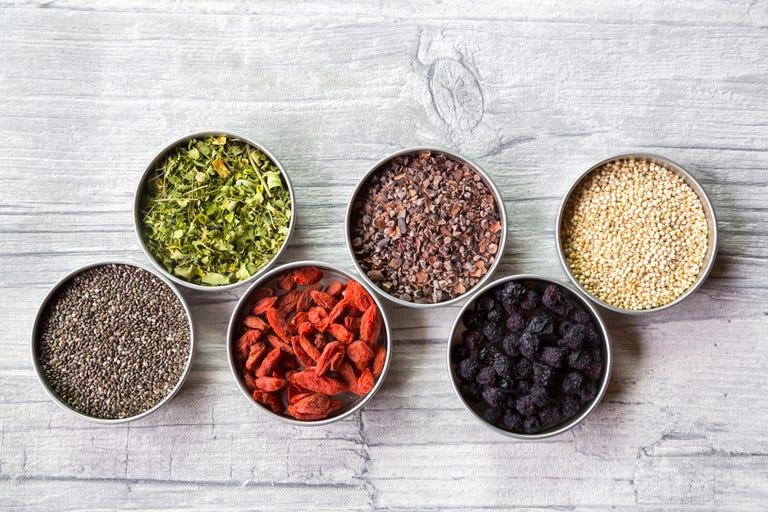
Crushed plants are edging out protein as the powders of the moment. I mean, have you opened Instagram lately? Influencers swear these “superfood powders” do everything from rev your metabolism to boost your sex drive to make your hair shine and skin glow—and they’re stirring them into every latte and smoothie they can find.
While you should give some of these claims the side-eye (because come on, literally no food can do all of those things!), there are certain superfood powders that actually may deliver a few major benefits.
But FYI: If you’re pregnant, ask your doc before consuming any herbal supplement or powder.
With that said, here are five superfood powders that go way beyond whey:
Moringa
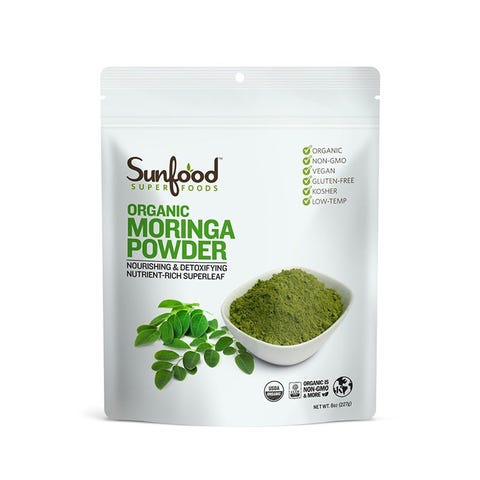
Sunfood
A two-teaspoon serving of this superfood powder packs nearly three times the iron of a cup of raw spinach and half your recommended daily vitamin A. And because they’re packed with antioxidants, the peppery-tasting leaves of the tropical moringa tree can relieve pain, ward off high blood pressure, rev immune function, and protect the liver, kidneys, and heart, research shows.
Try it: Mix 1/2 tsp. with lemon zest, sea salt, and olive oil, then drizzle onto raw kale and bake to make kicked-up veggie chips.
Ashwagandha
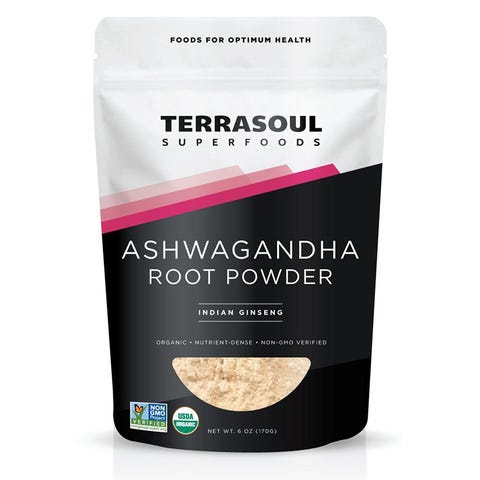
Terrasoul
A mainstay of Ayurvedic medicine, this bitter Indian adaptogen (a type of herb thought to assist your cells in dealing with stress) has been shown to help people feel less frazzled. Plus, it may aid in the prevention of diseases such as Parkinson’s and Alzheimer’s, possibly by stopping the loss of tiny connections between neurons in your brain.
Try it: Blend 1/2 tsp. with almond milk, 1 scoop protein powder, and 2 Tbsp. each tahini and cocoa power for a nutty smoothie.
Maca
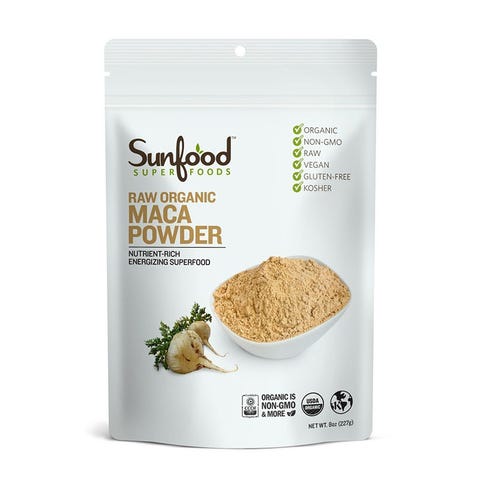
Sunfoods
This malt-flavored Peruvian root could amp up your sex drive. Roughly half a teaspoon a day improved sexual function in women on antidepressants (SSRIs, a common class of the meds, can curb libido), particularly in their ability to orgasm, per one study. The other bedroom benefit: Research suggests compounds in maca may help promote sleep.
Try it: Top oatmeal with 1 to 2 tsp. or add 1 Tbsp. to muffin or pancake mix before baking.
Curcumin
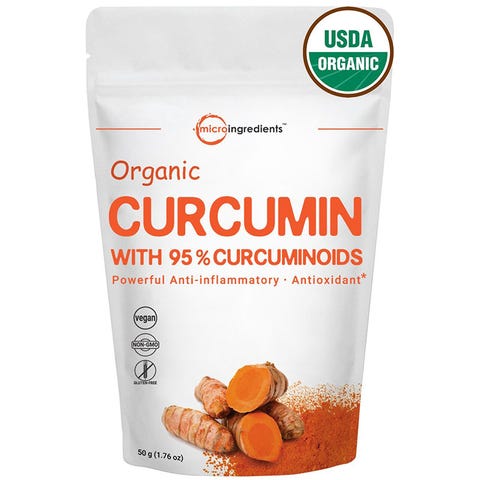
Micro Ingredients
The compound behind turmeric’s yellow hue may help reduce symptoms of inflammatory issues such as arthritis and inflammatory bowel disease. The slightly sharp-tasting spice’s anti-cancer résumé is also strong: Early research suggests it may prevent and slow tumor growth.
Try it: Shake 1/2 tsp. on eggs with a pinch of black pepper, which can help improve your absorption of the curcumin.
Schisandra
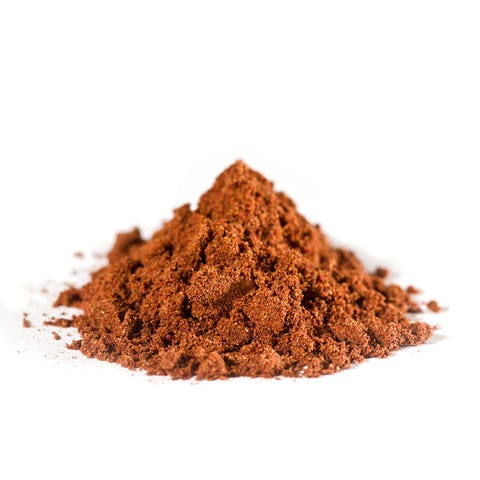
Getty Images
Lignans, antioxidants in this berry’s seeds, have been found to strengthen liver function. Regularly ingesting the five-flavor berry (because it somehow tastes simultaneously sweet, sour, salty, bitter, and spicy) might also help you get home sans GPS: In one study, mice who took a daily dose showed amped spatial and short-term memory skills when navigating a maze.
Try it: Sprinkle 1 teaspoon of this superfood powder over a bowl of popcorn.
One super-buzzy supplement you should def skip? Nootropics—types of supplements (like L-theanine and aniracetam) that claim to enhance cognition and creativity—dot the desks of Silicon Valley execs looking to gain a mental edge.
But experts warn that they may not live up to the hype. With little research to back their benefits, any brain-enhancing perks people feel are likely due to the placebo effect, says Kimberly Urban, Ph.D., a Philadelphia neuroscientist who studies how psychiatric medications and nootropics affect cognition. Or the pick-me-up may be from caffeine, which is one of the most prominent ingredients in many of the pills.
Sources: Mark Hyman, M.D., director of the Cleveland Clinic Center for Functional Medicine and author of Food: What the Heck Should I Eat?; Melina Jampolis, M.D., physician nutrition specialist and author of Spice Up, Slim Down; Frank Lipman, M.D., founder of Be Well and author of How to Be Well; Tricia Williams, holistic nutritionist in NYC and founder of Food Matters NYC.
This article originally appeared in the June 2018 issue of Women’s Health. For more great advice, pick up a copy of the issue on newsstands now!
Source: Read Full Article